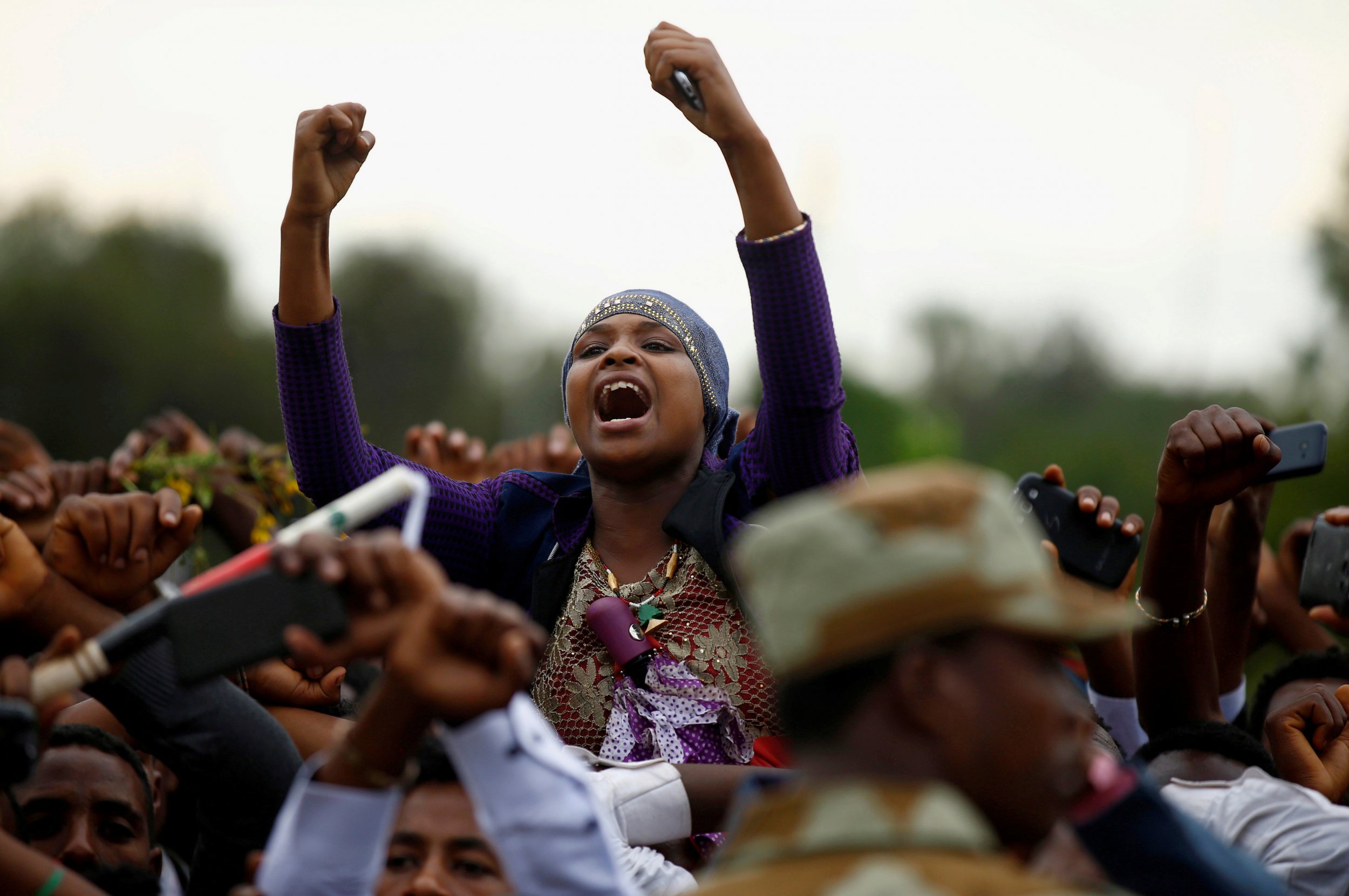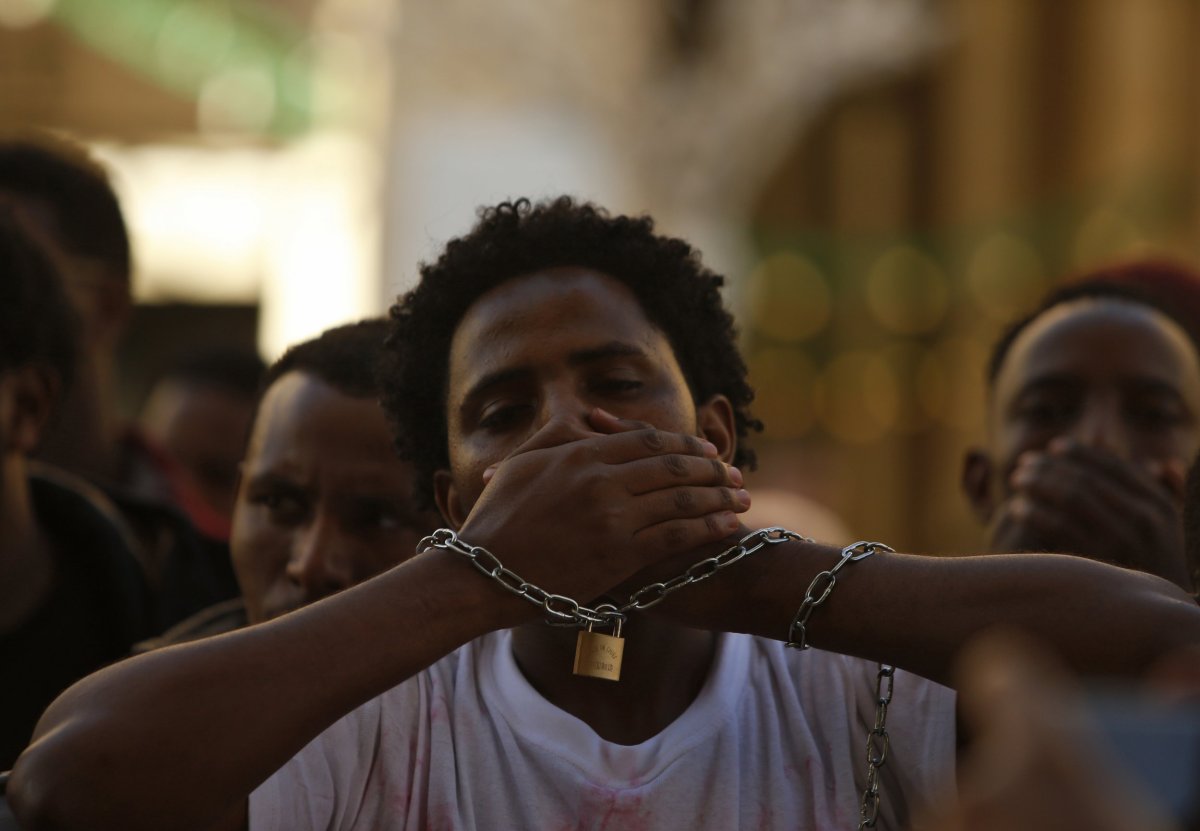
Ethiopia has banned armed police from a religious festival where dozens of people were killed in 2016 during violent anti-government protests.
The Irreecha thanksgiving festival is held each year on October 1 in Bishoftu, around 25 miles south of the capital Addis Ababa.
During the 2016 festival, security forces fired tear gas at crowds, purportedly triggering a stampede. The Ethiopian government said at the time that over 50 people had died, but opposition activists said that hundreds of people were killed and accused security forces of orchestrating a massacre.
"The security situation in the region has improved immensely compared to last year, so armed personnel will not be allowed to be at the center of the festival," Lomi Beo, the head of Oromia's culture and tourism office, told the AP Sunday.
"Armed police will be confined to the outskirts of the festival site as per the request of the religious leaders. We don't expect last year's tragedy to happen again."
Read more: Why is the U.S. worried about Ethiopia's latest conflict?
The 2016 festival came amid widespread anti-government protests in Ethiopia, which broke out in November 2015 in Oromia, the country's largest region. Members of the majority Oromo ethnic group protested at government plans to expand the capital city, which they believed would result in forced evictions of farmers and expropriation of land.
The government abandoned the plans in January 2016, but the protests spread to other regions in the country. A Parliament-mandated investigation found that 669 people were killed in the unrest before the government imposed a state of emergency—just over a week after the Irreecha stampede—in October 2016. Opposition activists said the death toll was much higher.

Oromos celebrate the Irreecha festival each year to mark the end of the rainy season and welcome the harvest. Beo said that 1.5 million people are expected to take part in this year's festival.
Human Rights Watch (HRW) has called for an international investigation into the 2016 Irreecha festival. The rights group interviewed more than 50 attendees, witnesses and others and found that security forces' use of force contributed to the stampede.
"With longstanding grievances unanswered, this year's Irreecha could be fraught with tensions," said Felix Horne, senior Africa researcher at HRW.
"The government and security forces should take all necessary steps before and during the festival to protect human life and de-escalate tensions."
Ethiopia is a key Western ally and recipient of donor aid in the Horn of Africa region, where it cooperates with the United States on fighting terrorism in neighboring Somalia.
The U.S. Embassy in Addis Ababa recently issued a statement saying it was "disturbed" by reports of ethnic violence along the border of two regions in Ethiopia, Oromia and Somali. At least 50 people have been killed and more than 50,000 displaced in clashes along the border, according to local officials.
The U.S. Embassy urged the Ethiopian government to conduct a "transparent investigation into all allegations of violence and to hold those responsible accountable."
Ethiopia Prime Minister Hailemariam Desalegn recently met with religious leaders and elders from the region in a bid to address the clashes.
Uncommon Knowledge
Newsweek is committed to challenging conventional wisdom and finding connections in the search for common ground.
Newsweek is committed to challenging conventional wisdom and finding connections in the search for common ground.
About the writer
Conor is a staff writer for Newsweek covering Africa, with a focus on Nigeria, security and conflict.
To read how Newsweek uses AI as a newsroom tool, Click here.








